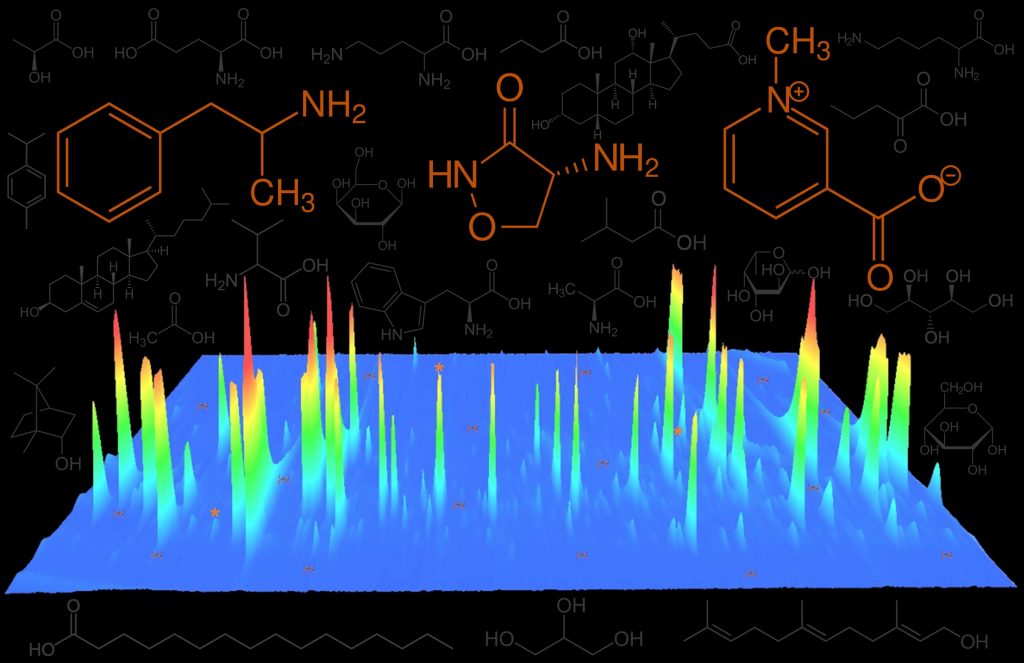Submission 2023
| Submitted by: | Kieran Tarazona Carrillo |
| Department: | Chemistry |
| Faculty: | Science |
Metabolomics studies the collection of small molecules (i.e. metabolites) in living systems using different analytical instruments. My research takes advantage of the superior separation power of comprehensive two-dimensional gas chromatography to study the metabolome of complex biological samples. One objective is to investigate metabolites in crab gills from Caribbean ecosystems in an effort to understand the symbiotic interactions between the crabs and bacteria living on their gills. This 3D surface chromatogram of a crab gill sample demonstrates signals and structures of various metabolites found in the gills. The most remarkable finding was the presence of the highlighted metabolites: amphetamine, cycloserine, and trigonelline. Amphetamine is a pharmaceutical compound whose source is under investigation, while cycloserine and trigonelline are antimicrobial compounds that could influence the microbial communities living on the gills. Specifically, cycloserine is produced by bacteria suggesting its direct implication in symbiosis through the protective effect it imparts on the crabs by preventing growth of harmful bacteria in the gills.

